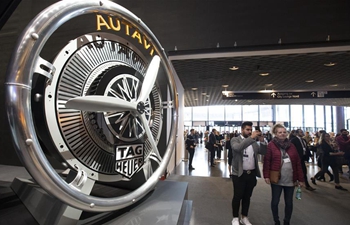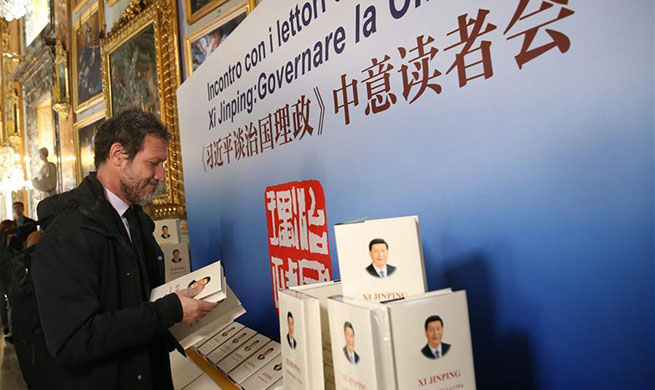ANKARA, March 22 (Xinhua) -- Turkey extended tax cuts on cars and other goods on Thursday in a bid to promote consumption amid economic recovery following the currency turmoil in recent months.
Turkey had imposed tax cuts on goods in 2018 to reinvigorate the markets under the currency pressure.
All value-added-tax (VAT) rates for commercial vehicles were lowered to 1 percent from 18 percent. The special consumption tax rate for household appliances was set to zero.
Tax cuts on automobiles, commercial vehicles and home appliances were extended until June 30, while those on furniture, housing and title deed fees will remain effective until Dec. 31, according to the official gazette.
Accordingly, the title deed fee discount and the VAT cuts in housing sales and the furniture sector from 18 percent to 8 percent will continue until the end of the year.
Turkey has seen high volatility in its currency and running inflation and annual inflation stood just above 20 percent in January. With a persistent inflation, the government this month launched the direct sale of cheap vegetables and other essential goods in temporary state-run markets in Istanbul, Ankara and other cities to bring prices down. Yet state-regulated sales had a modest impact on inflation figures.
Meanwhile, the Turkish government also raised the withholding tax on some foreign currency deposits.
The withholding tax on foreign currency time deposits of between six months and one year was raised to 20 percent from 16 percent. The withholding tax on foreign currency time deposits of more than a year was raised to 18 percent, from 13 percent. Foreign currency deposits in Turkey's banking sector account for more than 50 percent of all deposits.
"It is certain that the extended tax reductions will have a positive effect on the domestic market," said Chair of the Association of Vehicle Supply Suppliers Alper Kanca, adding that it would be crucial to keep the positive momentum since the stagnation is also valid for the European markets.
"In 2018, our domestic market sales decreased by 35 percent compared to the previous year, to 642,000 units. In February 2019, there was a 53 percent decrease compared to February 2018," he added.

















